Ski Touring in Rogers Pass and The Winter Permit System
Situated in the Columbia Mountains, Glacier National Park’s 1349 km2 of peaks, glaciers and forest straddle the crest of the Selkirk Range, an area of legendary snowfall. Visitors to the park will find ski touring terrain including glades, alpine bowls and icefields where descents of more than 1500 metres are possible. All ski destinations in the park require knowledge of travel in avalanche terrain. Skiers are urged to wear avalanche transceivers, carry a shovel and probe, and be prepared for self rescue.
If you plan to tour in Glacier National Park, be aware that many areas of the park have restricted and prohibited access in winter — which are defined and managed within the Winter Permit System, a component of the Highway Avalanche Control Program. The system protects backcountry users from the danger of direct artillery fire and the resulting avalanches.
Planning your day in Rogers Pass
Check today’s Avalanche Bulletin and DriveBC.ca to determine the current conditions
Determine where you plan to go – the Winter Terrain Atlas may help.
Many areas of Glacier National Park are Winter Unrestricted Areas – all you will need is a national parks pass.
A new Geocountry Rogers Pass guide book will be available in December, this book and related electronic services will get a new standard.
If your destination is a Winter Restricted Area:
check to see if the area is open today (i.e. no avalanche control work is planned)
everyone in your group will need an Annual or Daily Winter Permit and a national parks pass. Permits and passes can be obtained at the Rogers Pass Discovery Centre.
What trailhead will you leave from? Be aware that visitors must use designated parking lots during the winter season and you may require a winter parking permit.
Ensure you have a National Parks Pass that is valid in Glacier National Park – these are available from the Rogers Pass Discovery Centre or from the Parks Canada office in Revelstoke.
Visit the helpful staff at the Rogers Pass Discovery Centre. They provide information, Annual and Daily Winter Permits, winter parking permits, winter camping permits and a voluntary registration service. Maps and guidebooks are available for purchase.
For guiding services and information, please contact the Association of Canadian Mountain Guides (ACMG).
Unfamiliar with the Winter Permit System? Please read on and watch our helpful video that explains the system.
Highway Avalanche Control and the Winter Permit System
Parks Canada and Canadian Forces operate the world’s largest mobile avalanche control program to keep the Trans-Canada Highway and the Canadian Pacific Railway open through Rogers Pass. If you plan to tour in Glacier National Park, be aware that many areas of the park have restricted and prohibited access in winter — which are defined and managed within the Winter Permit System, a component of the Highway Avalanche Control Program.
When the Winter Permit System comes into effect each winter, the notice is posted on the Important Bulletins section of the website.
What is the Winter Permit System?
The Winter Permit system allows backcountry users to enter Winter Restricted Areas that are affected by the highway avalanche program when artillery gunfire is not anticipated. This system protects the public from the danger of direct artillery fire, including fragments that can travel up to 1000 metres and the resulting avalanches.
Avalanche control work is conducted to keep the transportation corridor open, and does not render slopes safe for winter recreationists. Anyone travelling into the backcountry in winter should have proper training to assess avalanche terrain and conditions, as well as the appropriate equipment and skills for self-rescue. A National Park pass and a valid Winter Permit is required to enter a Winter Restricted Area and a valid winter parking permit is required at Bostock, Hermit, Loop Brook, NRC Gulley and Stone Arch trailheads.
The Winter Permit System divides the park into three types of areas:
Winter Prohibited Areas
These areas are closed to visitors all winter. The areas are used for snow study, explosive testing or are at risk of triggering avalanches directly onto the highway.
Winter Restricted Areas
A valid Winter Permit and a National Park pass is required to park a vehicle or ski in these areas. Permit holders can only ski here on days when the area is posted as open, when there is no chance of artillery fire happening in the area. View the Winter Restricted Areas Status.
Winter Unrestricted Areas
These areas of the park are open to visitors all winter. A Winter Permit is not required, however you still require a National Park pass.
Your Safety…
The Winter Permit System is based on concern for public safety. Boundaries of Winter Restricted and Prohibited areas ensure standards of 1000-metre standoff (distance) from artillery targets. The system also incorporates safe public parking areas during closures of the Trans-Canada Highway for avalanche control.
Parking
If you are parking anywhere in the park, a valid National Park Pass must be displayed on your vehicle. The following parking areas require additional parking permits:
Bostock Parking Winter Restricted Area
The parking at Bostock is designated as Bostock Parking Winter Restricted Area, and is available only for Annual or Daily Winter Permit holders when it is posted as ‘Open’.
This area provides parking for:
Adjacent WINTER UNRESTRICTED AREAS (ex. Flat Creek)
WINTER RESTRICTED AREAS (Smart, Fortitude, McGill and Camp West)
A Bostock Overnight Parking Permit is available at the Rogers Pass Discovery Centre for skiers wishing to overnight in adjacent Winter Unrestricted Areas.
Other Parking Areas
A valid winter parking permit is required to park at:
Hermit, Loop Brook, NRC Gulley and Stone Arch trailheads.
See maps below for information on other winter parking locations.
Overnight Parking
Winter overnight parking for 15 vehicles is available on a first come, first served basis at the Rogers Pass Discovery Centre. Camping vehicles must be self-contained – no power, water or sewer service is available. Tenting is not permitted at the Discovery Centre because of the danger associated with snow removal operations.
Overnight parking at the Illecillewaet/Asulkan Trailhead is only available for visitors staying at huts operated by the Alpine Club of Canada. Permits for winter overnight parking at the Pass and the trailhead are available from the Rogers Pass Discovery Centre.
Winter Permit Area Maps
Map 1. Glacier National Park Winter Prohibited and Restricted Areas (PDF, 580 KB)
Map 2. Shaughnessy Winter Restricted Area to Grizzly Shoulder Winter Restricted Area (PDF, 606 KB)
Map 3. Hermit Winter Restricted Area to Smart Winter Restricted Area (PDF, 627 KB)
Map 4. Avalanche Winter Restricted Area to Smart Winter Restricted Area (PDF, 649 KB)
Map 5. Cheops Winter Restricted Area to McGill Winter Restricted Area (PDF, 657 KB)
Map 6. Camp West Winter Restricted Area to Fortitude Winter Restricted Area (PDF, 626 KB)
*Note: You can determine coordinates on maps by saving the PDF onto your desktop. Click on Tools->Analysis->Geospatial Location Tool. Choose Easting and Northing, or Latitude and Longitude by clicking on Edit->Preferences->Measuring (Geo) and choose from drop-down boxes in Geographic Location box.
Designated Access Routes
Designated access routes are in place for:
Tupper Winter Restricted Area
Ross Peak Winter Restricted Area
Flat Creek Unrestricted Winter Permit Area, Fortitude and Smart Winter Restricted Areas.
Obtaining a Winter Permit
Please note that all visitors to Glacier National Park must purchase a valid National Park Pass. Winter Permits are provided free of charge.
In winter, backcountry users may obtain a valid Daily Winter Permit to enter Winter Restricted Areas on a daily basis at the Rogers Pass Discovery Centre at Rogers Pass. Please note that every individual will have to obtain their own Daily Winter Permit. Professional guides can pick up packages of Daily Winter Permits and Waivers in advance for their clients to fill out each morning.
More frequent users may apply for an Annual Winter Permit to enter into Winter Restricted Areas. This requires:
Winter Permit Quiz Take the Winter Permit Quiz now!
Taking the online Winter Permit quiz and scoring 100% correct. Further instructions are provided in the quiz introduction.
Agreeing to and signing a Waiver of Liability and Indemnity Agreement
Accepting the terms and conditions.
Permit Validity and Violation Consequences
Winter Permits are valid from the daily time of issue to midnight of the same day and are valid only for those Winter Restricted Areas which have been posted as open for entry and travel on that day. Overnight use or camping is not permitted in any Winter Restricted Area. Any person requesting a Winter Permit will first be required to agree to a Waiver of Liability and Indemnity Agreement.
Individuals entering a Winter Prohibited Area or a Winter Restricted Area that is closed to entry, or not complying with permit conditions or parking restrictions, may be prosecuted, resulting in a maximum fine of $200,000 and/or permit cancellation. Vehicles parked illegally may be towed at the owner’s expense.
In order for backcountry users to continue to have access to restricted slopes facing the Trans-Canada Highway, avalanche forecasters need to be confident that there is complete compliance with the Winter Permit system. If the increasing trend in non-compliance continues, the result will be the end of the Winter Permit System and loss of access.
Public Safety
Parks Canada’s primary concern is for public safety. Winter Permits will not be issued to Winter Restricted Areas where access depends on trespass of Canadian Pacific (CP) property. Access to four Winter Restricted Areas (Tupper, Ross Peak, Fortitude, Smart) have been established via routes that avoid crossing CP property. CP Police patrol these sites and may tow and impound vehicles illegally parked on CP property. As well, individuals trespassing on CP property may be prosecuted.
Anyone travelling into the backcountry in winter should have proper training to assess avalanche terrain and conditions, as well as the appropriate equipment and skills for self-rescue.
Highway Safety
The Trans-Canada Highway itself is not part of the Restricted or Prohibited Areas, but highway plowing and avalanche control activities place restrictions in some areas.
No stopping within signed avalanche areas along the highway
You must obtain a Winter Parking Permit (provided with your Daily and Annual Winter Permits) for parking at designated parking areas
Visitors are asked to obey all signs along the highway
Skiers travelling alongside the highway are asked to travel on the side of the snowbank away from the highway rather than on the highway shoulder for safety reasons.
If an avalanche control action has started while you have been skiing you may find a card on your windshield. Remain with your vehicle at the designated parking area until you are notified that the highway is open.
Rogers Pass Discovery Centre: Winter Permits and Information
Situated at the summit of Rogers Pass, the Rogers Pass Discovery Centre is the principal source of park information and offers the following services:
Backcountry Reports – A daily information bulletin regarding avalanche activity, weather and snow conditions, also available by calling (250) 837-MTNS (250-837-6867).
Winter Permits – When conditions allow, some Winter Restricted Areas are open on a day-to-day basis. A valid Winter Permit is required and can be obtained at the Rogers Pass Discovery Centre on the days you plan to ski. There is no fee for this permit. Winter Permits will not be issued at the Parks Canada office in Revelstoke.
Voluntary Registration Service – Visitors may register their trip plans with the park. Failure to check back in will initiate a search.
Please note:
A Wilderness Pass is required for winter camping. These can be purchased at the Rogers Pass Discovery Centre.
All visitors require a valid National Park Pass which can be obtained from the Rogers Pass Discovery Centre and at the Parks Canada office in Revelstoke.
There is no hotel accommodation or vehicle fuel available in Glacier National Park at this time. Please contact the Revelstoke Chamber of Commerce or Golden Chamber of Commerce for nearby accommodation referrals.
In the Event of an Emergency
Emergency Dispatch Number:
Call 1-877-852-3100. Tell dispatchers you have a backcountry emergency in Glacier National Park and require assistance. Please note the cell service is not always reliable through the park.
Call 911 for Police, Fire or Ambulance.


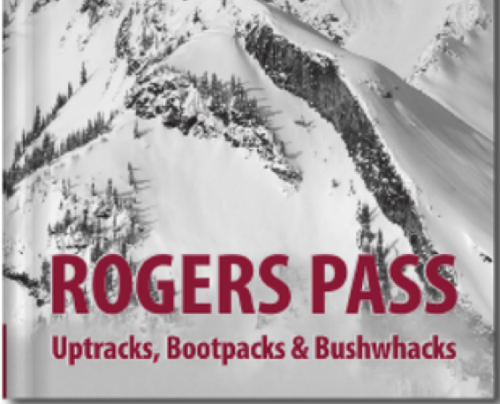

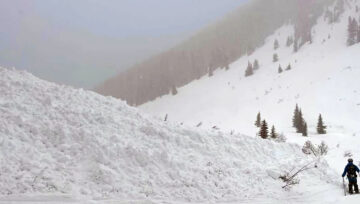
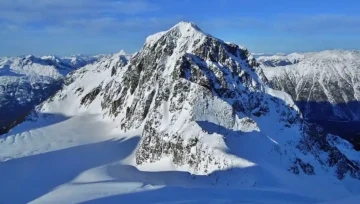
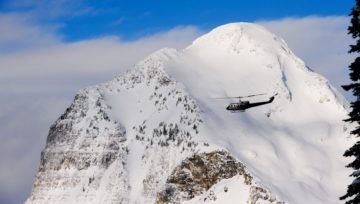
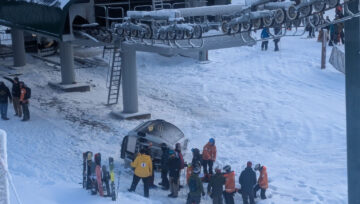

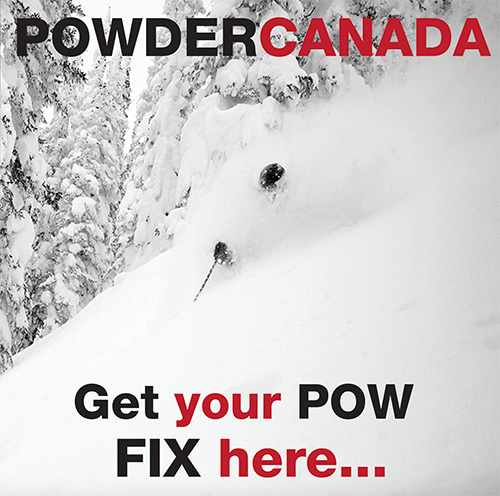

Comments